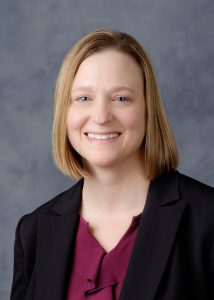Allison McWilliams: Opportunities for reflection
Allison McWilliams is assistant vice president of mentoring and alumni personal and career development in the Office of Personal and Career Development. She writes occasional articles for Inside WFU. This is the fourth for the fall semester. In each, she shares observations and suggestions with faculty and staff from her professional experiences with students.

Allison McWilliams
Think for a moment. When was the last time, upon completing a big project or task, that you took thirty minutes to answer these questions: What just happened? How do I feel about what just happened? What did I learn? How will I use that knowledge in the future?
Be honest. None of us do this. We’re all just barreling through life, full-force, checking tasks off of our to-do list so that we can get through the day, get to dinner, get to bed, get to do it all over again tomorrow. And as a result, we’re all over-worked, over-stressed, and over-committed to do things that may not fit our strengths or skill-sets or align with our values.
If we’re not doing this for ourselves, chances are that our students aren’t either. This is one of the gifts of mentorship: it gives us dedicated space and time to just work on ourselves. And even if we aren’t doing this for ourselves (we should), as mentors we ought to be doing this for and with our students, and teaching them these skills and strategies. If they start to do it now, with us, these are practices they will take with them into the rest of their lives.
The end of the semester offers a wonderful time to be reflective, even as it seems that the tasks and to-do lists are piling up. This is exactly the time to ask students the What, Now What, and So What questions, about their semesters, about their experiences, about their classes and extra-curricular activities:
- What? Describe a recent experience, class, project, or task. What happened? Were you successful? Did you accomplish your goals? What role did you play? What challenges did you encounter?
- So what? How do you feel about what happened? What did you learn about yourself as a result?
- Now What? What will you do with what you learned, in the future? How will you use that knowledge to do things differently or the same?
I recently met a young alumnus who had just one major, because he decided that was where he wanted to put all of his focus. It was like meeting a unicorn. The more we help our students to be reflective, the more we help them to be intentional about the choices and decisions that they are making. And, a little role modeling of this practice by the grown-ups wouldn’t hurt, either.
Categories: University Announcements
